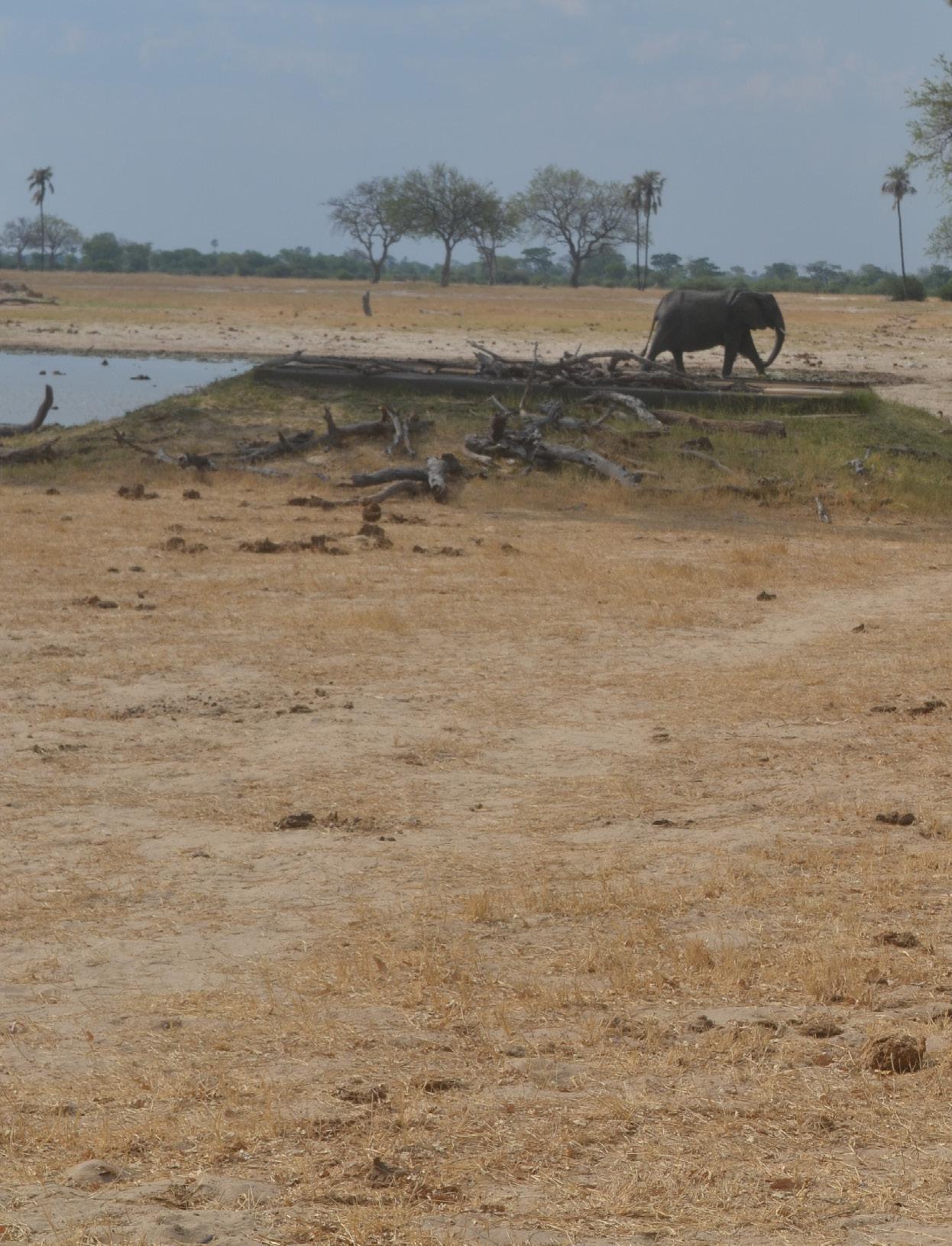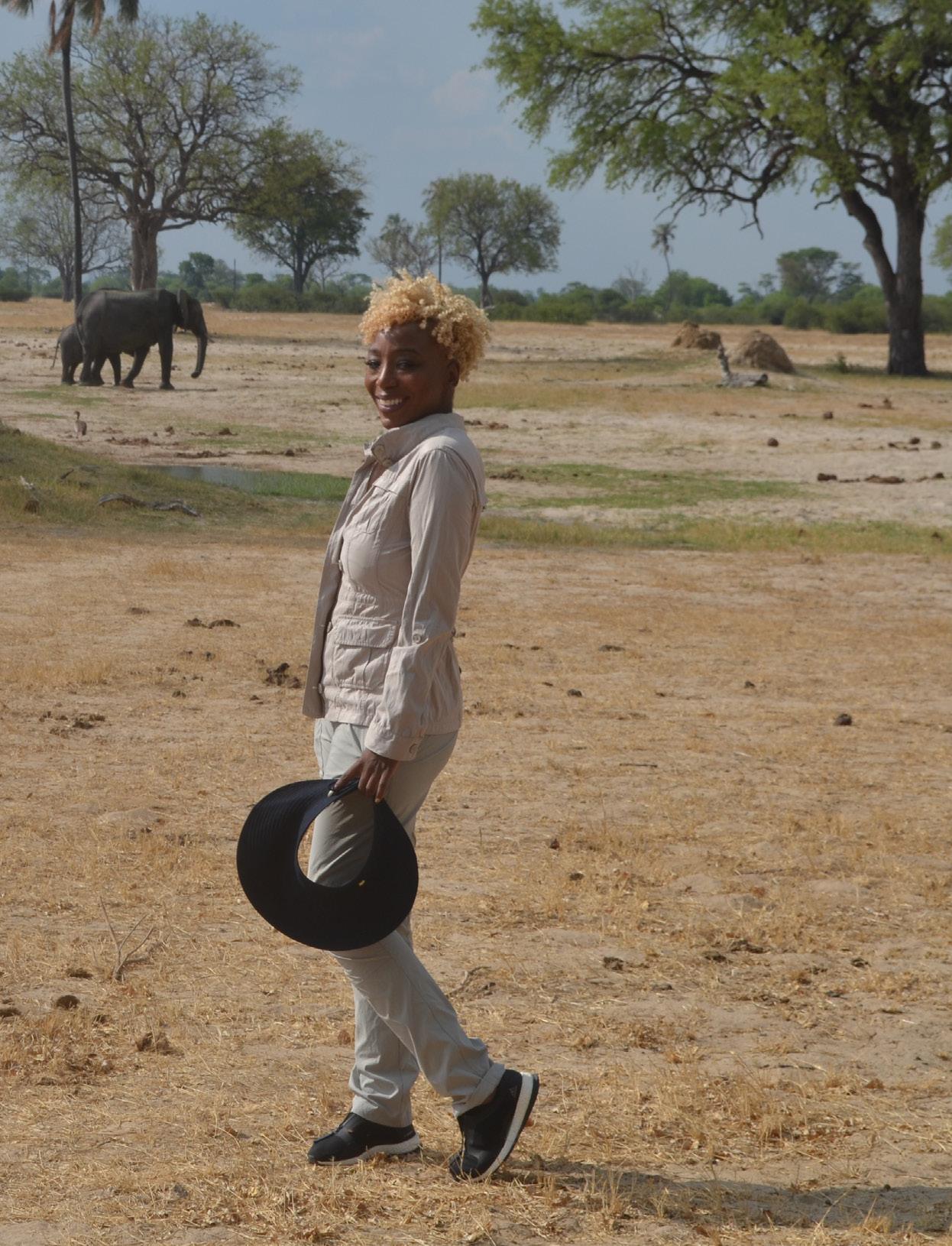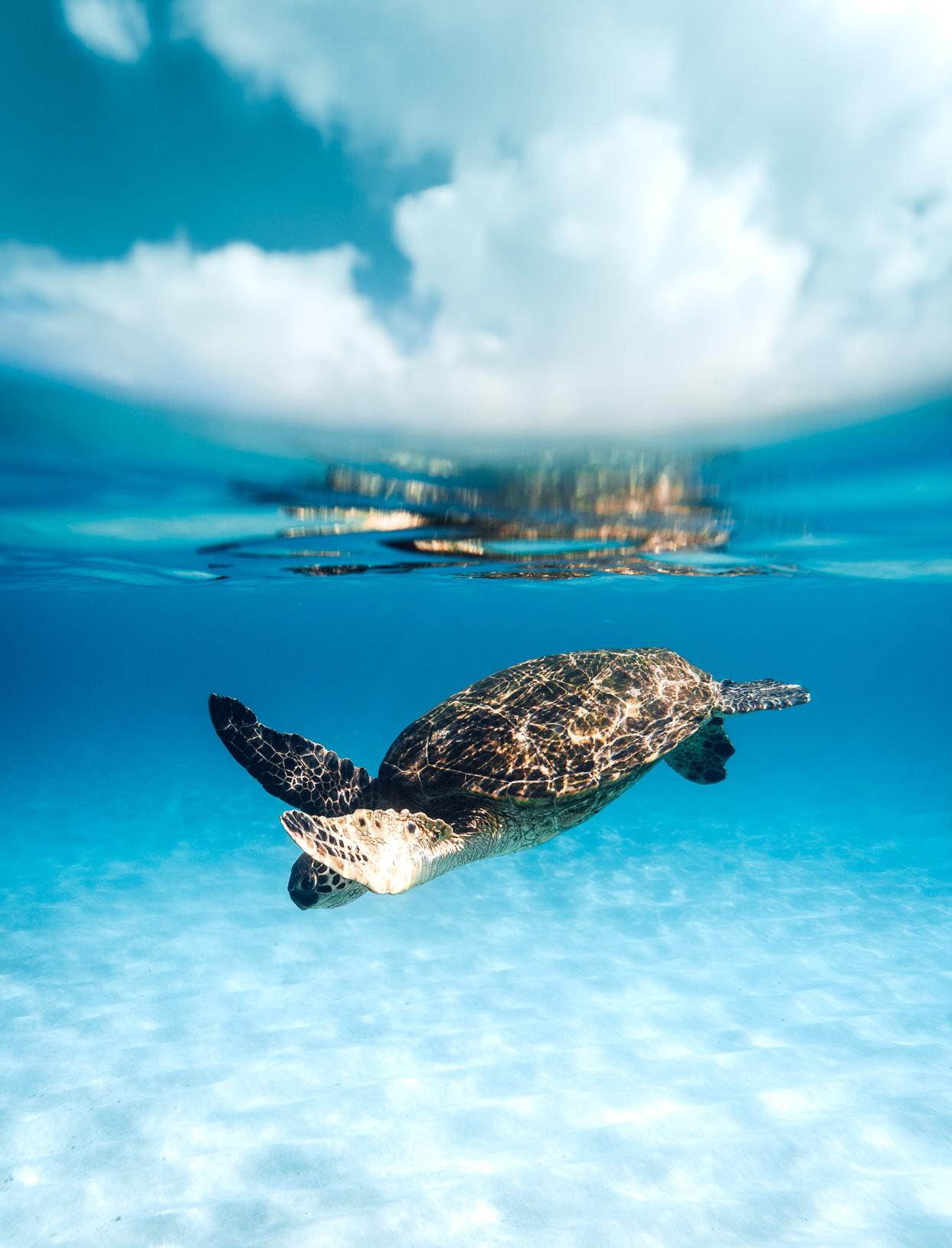
5 minute read
Dare To Claim The Planet Back
By Mucha Nyandoro

Advertisement
Mucha H Nyandoro | Chief of Tribe, Professional Tribes : https://bit.ly/ProTribesFacebook : https://bit.ly/ProTribes_Instagram : https://www.linkedin.com/company/ professionaltribes : https://bit.ly/ProTribesYouTube
Mucha Nyandoro : http://bit.ly/MuchaNyandoro_Instagram
Rather than giving the global pandemic that is COVID any more power by referencing it in great detail, I will rather speak of the positives that have come from having to deal head-on with the uncertainty it has wrought on society in general, and the travel and tourism sector in particular.
If there is something we tend to learn only when we are ejected from our comfort zones, is that we take too much in this life for granted. Consider that mass-market commercial air travel only came into its own in the 1950s, less than a century ago, and in this relatively short space of time we have taken the privilege of navigating the globe as a right.
I have often peered out of aeroplane windows midflight and imagined the countless generations that never got to experience flying above the clouds and travelling to new destinations in relatively short periods of time. Now, with the state the world currently finds itself, we appreciate more what hassle-free travel entailed (I am going back to pre-9-11 with this reference), and how much it enriched our lives, deepened relationships with those based in multiple geographies and enabled in-person business interactions.
A Victoria Falls and Hwange experience to remember And it is not only on the consumer side of things that we find a resurrected appreciation of travel and tourism. On a recent trip to Victoria Falls and Hwange, Zimbabwe, I was confronted by the genuine joy of staff across travel and tourism touchpoints who were totally thrilled to have guests in place again, and to cater to their every need.
The tourism sector tends to attract a higher proportion of people who sincerely love what they do, and when you add fully immersive experiences such as the management of game and safari lodges, that passion is amped all the way up to unbelievable levels. Destination tour managers smile more, waiters linger longer at their stations, and safari guides include additional details in their description of what lies in front of guests in the bush as they casually drop in diction laced with words such as crepuscular! Well done to Wilderness Safaris team for bringing game drives to life in a fun and refreshing way.
With my focus on all that represents Professional Tribes, I must commend Matetsi Victoria Falls’ management for committing to staff that despite the challenges of the ongoing circumstances, they would retain their jobs. There would have to be imaginative approaches to staff rosters and responsibilities, but no one was going to be let go for circumstances far beyond their own control. What a statement of intent to make.
Why experiential travel matters In busy, complex lives, it really is too easy to lose sight of the things that genuinely matter. Sitting in a boma and watching sparks from the wood fire ascend into the night sky, gazing up at infinite stars and contemplating the meaning of existence, listening to the wild calls from nature just outside your camp at the break of dawn, or trying to sleep to the sound of a stalking animal that turns out to be a lion, are life affirming endeavours no one ought to take for granted.
We are at a tipping point, where as the dominant species on the planet, we can make a choice to live more considered, fulfilling lives, or continue to chase our own tails with little appreciation of the dire repercussions of our actions. Too many gifts from nature are being destroyed, wasted, or marginalised by our pre-occupation with industrialisation and development for its own sake.
Doing better for nature Outcomes from the COP26 climate change conference held in Glasgow in November were muted at best, widely considered to have not gone far enough in helping avert the looming disaster that is forecast to come forth with global warming. Research released during the conference shows that the plans countries have laid out so far for reducing emissions (known as Nationally Determined Contributions) still add up to a terrifying 2.4C of temperature rise by the end of the century. This figure is meant to be managed at 1.5C.
And so, as the highly industrialised nations of the world continue to operate in ways that harm the entire planet, the travel and tourism industry, whose survival is related directly to the preservation of natural and other wonders, are left to consider their future against a backdrop of compounding negative factors.
At this tipping point, I choose to be reinspired and reinvigorated into highlighting and celebrating the beauty that abounds all around, which is however also fragile and in need of protection and conservation. I choose to take no aspect of this life and the wonderful, layered experiences it throws up for granted. The pandemic has shown us our own fragility as a species as well as our commonality, and if these twin factors do not galvanise us to aspire to new heights and do better with the resources we are blessed with, then nothing will.
The year 2022 remains an unknown quantity, though what is sure is that there will be strong forces looking to maintain and return to the status quo of old as soon as possible, and others, like myself, will be agitating for sustainable change and the turning of a corner. In just the same way that generations a century ago could not fathom the speed and reach of exploration today, similarly I hope that generations a century from now will be able to enjoy richer experiences because we safeguarded them, and not poorer ones because we squandered them.
I struggle to find a more apt quotation to frame the current times and the quiet optimism I hold for the future of this beautiful planet of ours than the ending of Max Erhmann’s Desiderata: “With all its sham, drudgery and broken dreams, it is still a beautiful world. Be cheerful. Strive to be happy.”
ADVENTURES IN WILD AFRICA











